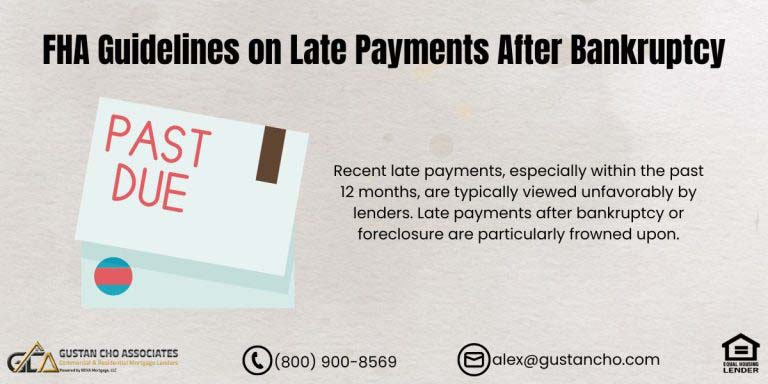This guide covers short sale home purchase process by homebuyers. Due to the financial and credit collapse of 2008, foreclosures rates hit an all time historical high. Real estate values plummeted more than 50% or more in some areas in the United States. Millions of Americans lost their jobs and were forced into bankruptcy. Million of homeowners turned to short sales to unload the burden of their mortgage payment they could no longer afford. In this article, we will cover and discuss the purchase process for Illinois homebuyers on short sale properties.
The Short Sale Home Purchase Process: A Comprehensive Guide for Homebuyers
Buying a home through a short sale could let you snag a property at a much lower price, yet the journey is rarely quick or simple. In this guide, we break down every step of the short-sale buying process, sharing real tips, common pitfalls, and handy strategies that keep you moving forward. Whether it is your first home or the latest addition to an investment portfolio, knowing how short sales work helps you make smarter choices and fewer mistakes.
What is a Short Sale?
A short sale happens when a seller works with the lender to sell a house for less than the balance on the mortgage. Usually, this arrangement kicks in after the owner hits serious money problems and can no longer keep up with monthly payments. To cut its losses and skip the more expensive foreclosure route, the bank agrees to take a smaller payoff at closing.
For hopeful buyers, short sales are tempting because they often open the door to below-market deals. Yet that bargain usually comes with longer waiting periods, layers of bank red tape, and the chance that approval could fall through. So, before diving in, you do want a clear map of how the process unfolds.
Could You Consider a Short-Sale Home Purchase?
Buying a short-sale home might sound risky, yet many people are drawn to the idea for practical reasons:
- Affordability: Because lenders want to sell rather than hold onto doomed properties, asking prices are usually lower than similar houses on the open market.
- Investment Potential: Savvy investors can grab these deals, fix them up quickly, and either flip them for profit or rent them out at steady cash flow.
- Less Competition: The paperwork and waiting can scare off casual buyers, so you often compete with only a handful of other fans instead of dozens.
- Still, short sales ask for patience and a flexible mindset since every decision has to pass through the lender, and weeks-even months-may pass without news.
- With that in mind, lets break the journey down step by step.
The Short-Sale Home Purchase Process: Step by Step
Get Pre-Approved for a Mortgage
- Before chasing a short sale, get pre-approved for a loan.
- The letter it produces shows the sellers and their bank that you can actually pay, not just dream.
Good news for you: stronger offers still stand after repairs and cleanups, and an early promise speeds everything up once the seller says yes.
- Tip: Seek a lender who knows short sales inside and out.
- Their insight can cut through red tape and spare you some of the headaches that sink first-time buyers.
Team Up with a Seasoned Agent Who Knows Short Sales
- Finding an agent who has closed short-sale deals makes your journey way easier.
- They’ll handle the red tape, talk directly to the lenders, and help you write an offer that stands out.
- Ask candidates about their history to make sure they actually know what theyre doing.
- Quick Search Tip:Type short sale real estate agent near me or experienced short sale realtor into Google to see local pros.
Hunt Down Short Sale Listings
You’ll find many short-sale homes on sites like Zillow, Realtor.com, and the MLS. Your agent can spot listings tagged short sale, subject to lender approval, or pre-foreclosure.
Try these places, too:
- Community real estate boards
- Foreclosure listing websites
- Local meet-ups with investors or agents
- Pro Tip: Good homes go fast, so be ready to move quickly when you see one you love.
Know What Youre Getting Into
Property Condition Short-sale houses are usually sold as-is, so you might find broken windows, leaky pipes, or outdated appliances. Always schedule a home inspection to spot trouble before you buy.
- Title Search: Check that no unpaid taxes, liens, or hidden claims will tangle the deal later.
Make a Competitive Offer
Writing a solid offer can make or break your short-sale journey. Your agent will dig through repair notes and area sales to set a fair price. Since the sellers bank has the final say, your number needs to be reasonable and backed by facts.
Key Considerations
- Skip the lowball bid
- Lenders reject them and delay your process.
- Can you add a pre-approval letter to show you mean business?
- Get ready for a little back-and-forth with the bank, who may counter your offer.
Search How to make an offer on a short sale home for expert articles that walk you through each step.
Wait for Lender Approval
After the seller gives a thumbs-up to your offer, that agreement lands on the sellers lender s desk next. This staging has a reputation for eating up the most stretch of days in a short sale. The bank digs into the sellers finances, checks the offer terms, and decides whether to green-light the deal. That answer could land anywhere between a handful of weeks and a few full calendar months.
What to Expect
- The lender might ask the seller for extra papers now and then.
- You will need to ride out delays because they show up often.
- Stay in close touch with your agent so you can track each step.
Conduct Due Diligence
While lender review drags on, put the pause to good use:
- – Schedule a home inspection to spot repair trouble.
- – Line up homeowners insurance so coverage kicks in at close.
- – Work with your lender to lock in financing terms.
Remember, short-sale homes usually sell as-is, so heavy fixes could tip you onto the fence about the purchase.
Close on the Property
The moment the lender stamps approve, the closing routine looks almost like any other sale. You sign papers, lock in your mortgage, and settle closing costs. A stark difference is that this final stretch often moves quicker than the approval wait yet still lags behind a clean sale because lenders love their extra steps.
- Tip: Always double-check every paper, and team up with a title company to make sure the title is clean.
Challenges of Buying a Short-Sale Home
Short sales can look like a great deal, but they also come with hurdles:
- Longer Timelines: It can take several months for the lender to say yes, so buyers need to stay patient.
- As-Is Condition: Because the seller has limited cash, he or she probably will not fix anything, leaving those costs on the buyer.
- Risk of Rejection: Even after back-and-forth talks, the lender may turn down the offer or ask for more money.
- Multiple Liens: Extra liens on the house can pop up, adding more paperwork and stress to the deal.
Working with pros and keeping your hopes realistic helps ease most of these bumps.
Tips for Success in a Short-Sale Purchase
- Be Patient: Treat every step as a slow walk; rushing usually ends in disappointment.
- Stay Flexible: Time lines can shift or new conditions can appear, so a go-with-the-flow attitude works best.
- Work with Experts: An agent, lender, and lawyer who know short sales will cut red tape wherever possible.
- Consider Cash Offers: A cash buyer shines in the lenders eyes, speeding approval and cutting finance worries.
- Monitor the Market: Keep an eye on similar homes in case the short sale stalls and another option opens.
Frequently Asked Questions About Short Sales
How Long Does a Short Sale Take?
Every case is a little different, but lender approval usually lands somewhere between 30 and 120 days. From the moment you make an offer to the day you get the keys, plan on waits that stretch from 3 to 6 months or even longer.
Can First-Time Homebuyers Purchase a Short Sale?
Absolutely! First-time buyers just have to team up with a savvy real estate agent who knows these deals inside out-so they avoid the headaches that can pop up.
Are Short Sale Homes a Good Deal?
Short sales sometimes roll in at huge discounts, yet buyers still need to budget for hidden repairs, extra delays, and the chance that things won-t work out.
Sellers Of Short Sale Homes
Short sales will definitely put a black mark on the selling homeowners credit report. They will see a drop of their scores but will relieve the selling short sale homeowner from a deficit judgment on the house. Short sale home purchase deals are a great way for a home purchaser to take advantage of a home purchase at bargain-basement prices.
What Is A Short Sale?
A short sale is the sale of a house that needs the cooperation of both the mortgage lender and the home seller. On a short sale, the seller is trying to sell their home for a lower value than the amount of the mortgage loan owed to the lender. They need the lender’s blessing and sign off. The lender will definitely take a loss. But also saves the lender the trouble in filing foreclosure proceedings.
Benefits Of Buying Short Sale Homes
A short sale buyer can capitalize on homes that are selling via short sale. However, nothing is that easy. Short sale home purchase buyers might find the home in shambles. Or might be dealing with hostile sellers.
Negatives of Short Sale Home Purchase
Buyers need to realize that short sale homeowners could be very emotional. This is because they are losing their homes. Probability is that they do not want to lose their home but are forced to. This is because they can no longer afford it. A short sale is a better alternative than being forced out by the county sheriff via a foreclosure and/or sheriff’s sale. Homebuyers need to be super-sensitive in dealing with sellers of short sale homes
How To Do Short Sale Home Purchase
Short sale home buyers should get a pre-approval letter from a mortgage loan originator. They should expect a lot of resistance and at times banks take their time. Home buyers of short sale home purchase should set proper expectations. They should realize that the short sale home buying process can take anywhere between three to six months versus 30 to 60 days on traditional home purchases. Dale Elenteny, a senior mortgage loan officer at Gustan Cho Associates says the following about short sale home purchase offer by homebuyers:
Many times, lenders of short sale homes do not fully cooperate. All final decisions come by the lender of the property:. Not the homeowner selling the short sale home.
Fully cooperate with loan officer processing and underwriting your mortgage loan. Make sure to provide all of your financials requested timely. Loan officers will go over mortgage application and documents required to process mortgage. So when the short sale lender gives the green light, everything is in order. Try to close on the home as soon as possible without any complications.
What Happens if the Lender Rejects My Offer?
If the bank says no, you can always submit a fresh offer, haggle, or simply move on to another house that fits your needs. For extra insights, search Google for short sale home buying FAQs and see a tailored list of answers just for you. Purchasing a short sale can be a win for buyers hunting value, but it wont happen overnight.
Patience, careful research, and a reliable crew of agents and lenders will keep you headed in the right direction until you finally claim that bargain house. Are you ready to kick off your search for a short-sale home?
Team up with a local agent who knows the ins and outs of these deals, and start browsing fresh listings now! Pass this guide along to anyone thinking about buying a short sale, and drop a comment below to share your questions or stories.
Writing Up Short Sale Home Purchase Offer
Most short sale home purchase transactions are in as-is condition so be prepared to do any work that needs to be done to pass home appraisal inspection. To learn more about short sale home purchase mortgages, contact us at 800-900-8569 or text us for faster response. Or email us at gcho@gustancho.com .










